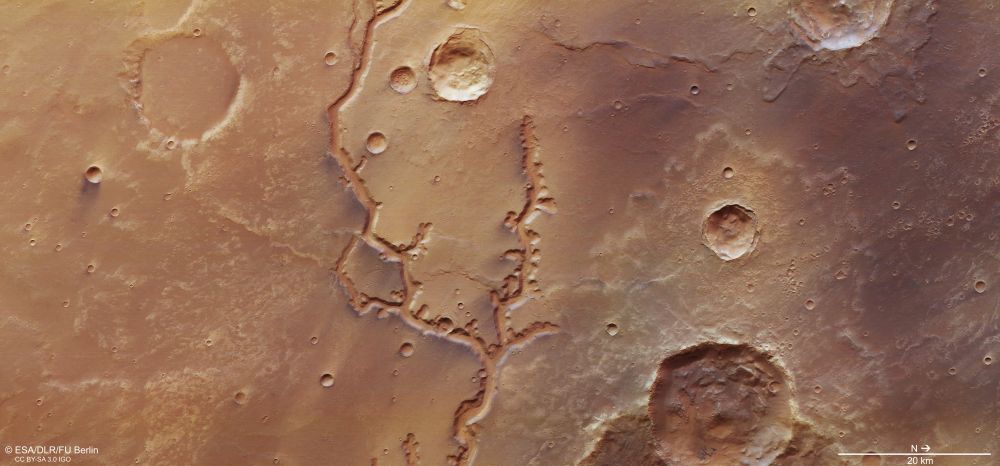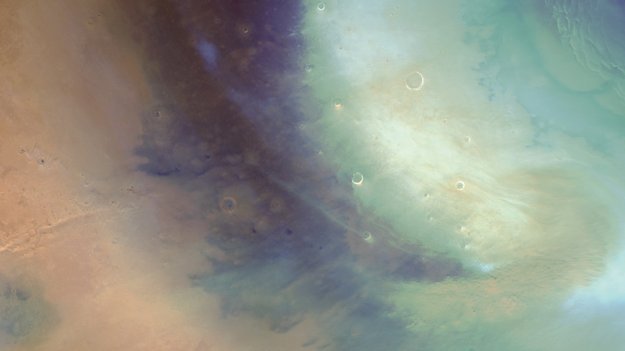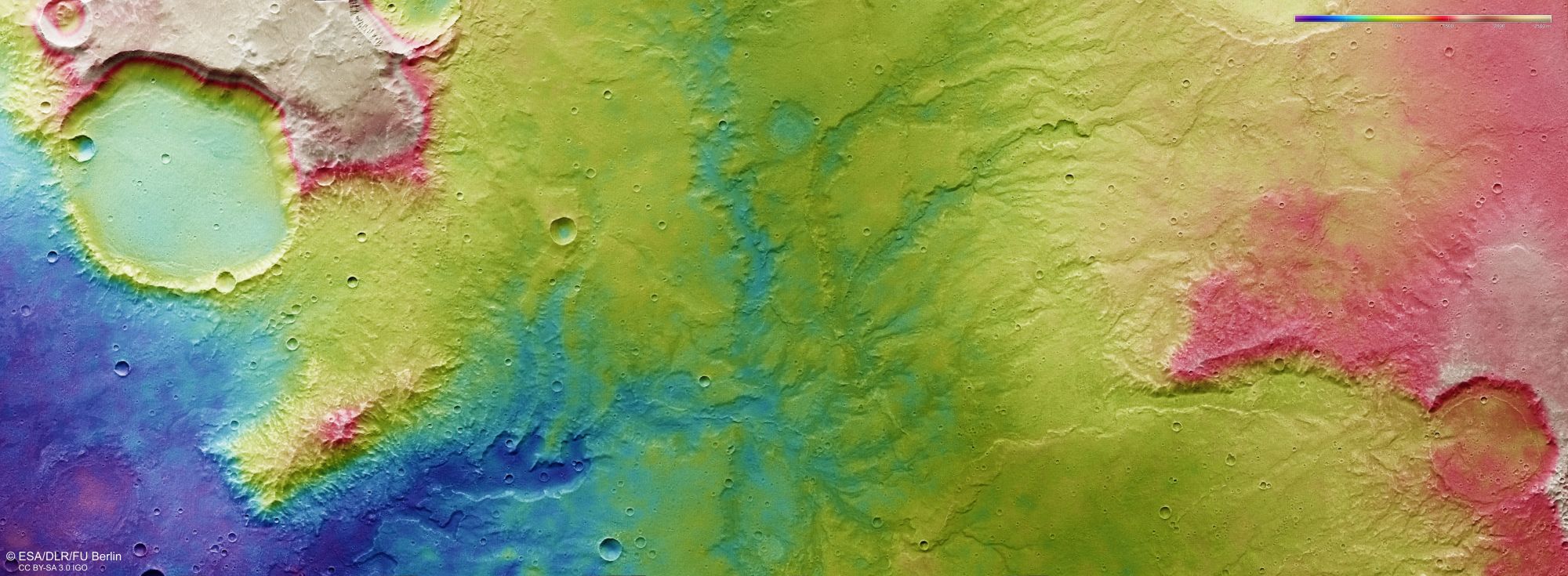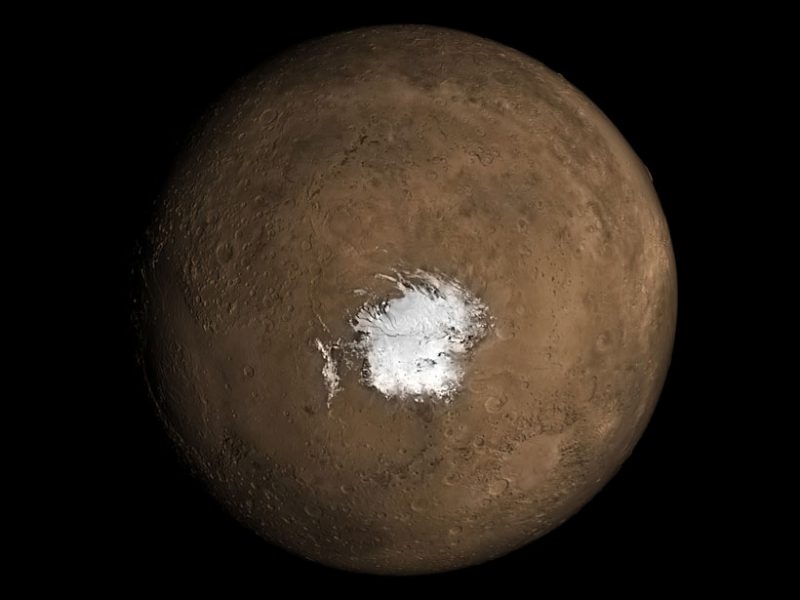From some viewpoints, Mars is kind of like a skeleton of Earth. We can see that it had volcanoes, oceans, and rivers, but the volcanoes no longer fume and the water is all gone. A new image from the ESA’s Mars Express drives the point home.
Continue reading “This Dried Up Riverbed Shows that Water Once Flowed on the Surface of Mars”This Dried Up Riverbed Shows that Water Once Flowed on the Surface of Mars





